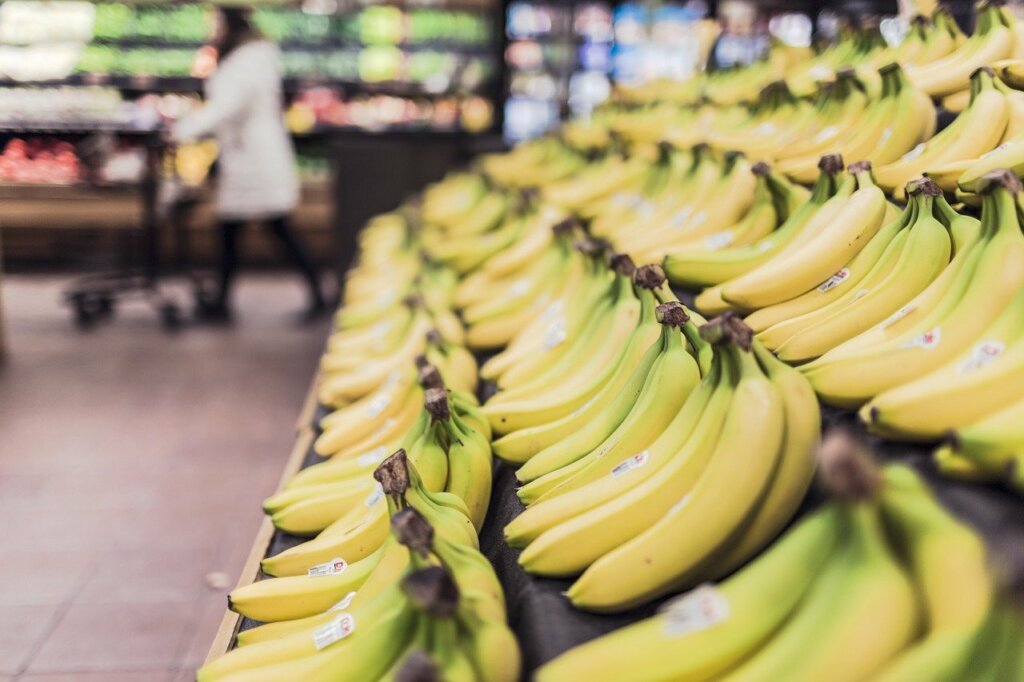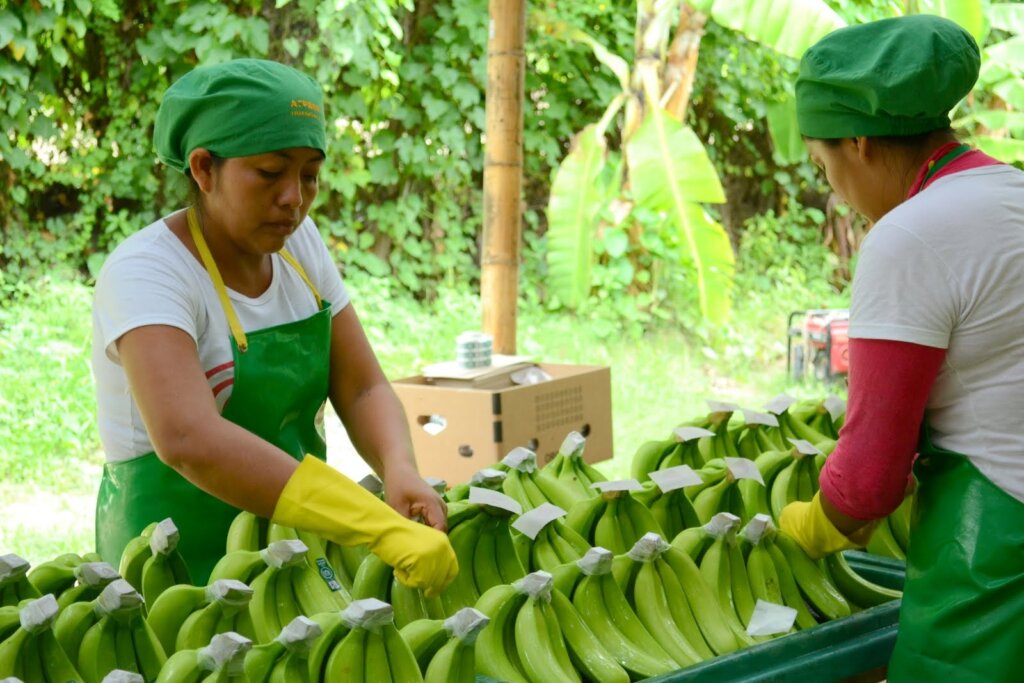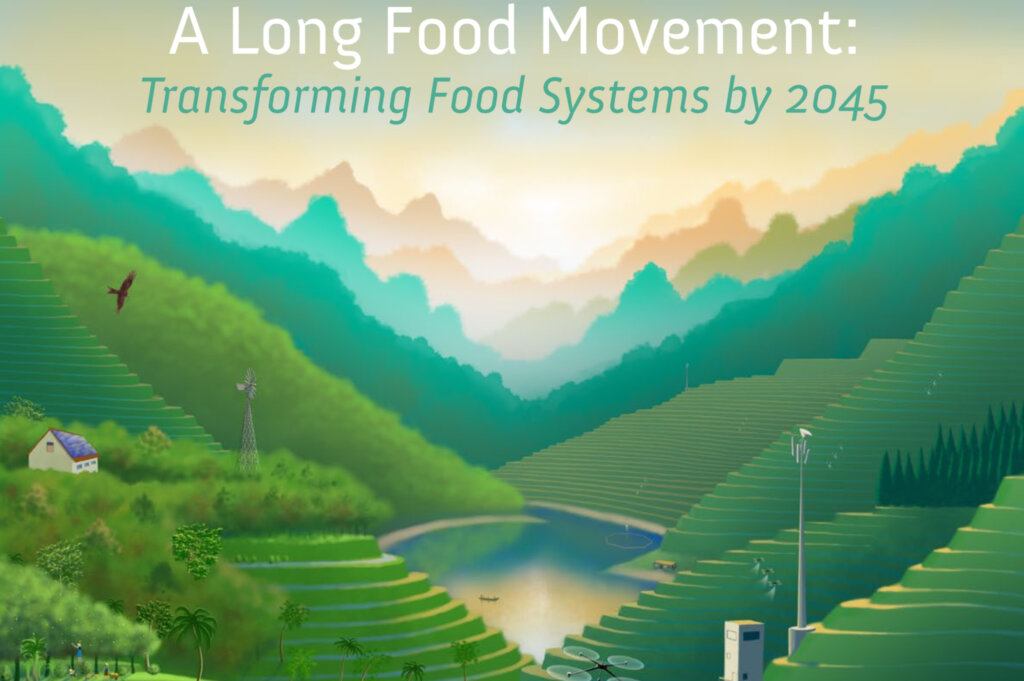Women’s economic inclusion and empowerment in the export banana trade
The banana industry is an important source of local employment for people who live in the banana producing regions of Latin America, West Africa and the Caribbean. Local communities depend on this work, and it is common for workers to live on the plantation too, in company provided accommodation. In many areas, work on the banana plantation represents the main, if not only, source of local employment. However, it is an industry that is still dominated by male workers, who represent 87.5% of employees in Latin American plantations, 83.1% in the West African industry and 60-65% in the Caribbean (excluding Dominican Republic).
As such, women’s economic inclusion and empowerment is dependent on changes being made within the banana industry. The situation is even more urgent where there’s a prevalence of women headed households. Research has found that in Latin America, for example, women- headed households are a common family structure, particularly in Colombia, where approximately 70% of women plantation workers identify themselves as heads of household, either because they are single mothers or because their partners do not contribute financially to the home. It is urgent that women who are the sole breadwinner for their dependents must not be excluded from the main source of employment in their community.
Women’s exclusion from employment opportunities has many complex reasons including patriarchal norms around the roles of men as financial providers and women as responsible for unpaid reproductive and domestic work. This drives the discrimination against women workers on the basis that they are more expensive and less reliable, as they will inevitably need to take time off to have babies, with a maternity leave cost implication, or to care for sick children, which is inconvenient to the employer.
Women’s work outside the home has not been valued equally to that of men, and in some cases, women still receive lower pay for the same work; in others they are confined to certain areas of the production system- typically the packhouse- since other work is deemed ‘too hard’ or ‘too technical’ for women, and this is a contributing factor to the gender pay gap. The reality that work systems and processes have been set up to suit the male worker is not given due consideration. Sexual harassment and gender based violence are also prevalent issues in many banana producing countries. The fact that women are underrepresented in the banana industry, and that when they are able to secure work, it is often on temporary, insecure contracts, is an aggravating factor.
Underlying the inequitable experience of women banana workers compared to their male counterparts, are trends in our global banana supply chain. Retail price-wars mean the profit margins of producing companies in most banana producing countries are so narrow that there is very little room for manoeuvring to make improvements in the workplace and provide equitable working conditions for all workers. In order to meaningfully address the issue of gender equity in the banana industry, there needs to be a recognition among large retailers that squeezing the profit margins of producers is at direct odds with their ability to make progressive changes including the ability to meaningfully promote women’s rights.
Gender is a cross-cutting theme, embedded in all areas of Banana Link’s work. We work strategically to promote women’s employment and empowerment through multi-stakeholder forums such as the World Banana Forum, where we co-coordinate the Gender-Equity Task Force, In 2020, this role saw Banana Link coordinate a series of webinars focusing on four key issues for women banana workers- women’s OHS, gender based violence and sexual harassment, the gender pay gap and initiatives to support women with negative impacts of the COVID-19 pandemic. The webinar series was an important tool for sharing good practice and laying foundations for communal strategies and work in the future.
Banana Link is committed to improving and increasing women’s employment in the Banana Industry. In recent years, Banana Link and the IUF have worked with Compagnie Frutiere on initiatives to tackle the disproportionately low levels of women’s employment on their subsidiary Golden Exotics Ltd (GEL) banana plantation in Ghana. The project identified barriers to women’s employment, in consultation with women workers. Measures included undertaking a gender specific health and safety risks assessment and implementing recommendations such as redesigning packhouses to better suit women workers, the introduction of a creche to support nursing/breastfeeding mothers , support and training for women’s career development, and greater involvement of women in collective bargaining, and outreach into local communities to raise awareness of employment opportunities and address misconceptions about working on the plantation for women. As a consequence, there has been a marked increase in the numbers of women employed at GEL. Between 2018 and 2020, women’s employment increased by 50%, from 8-12% of the overall banana workforce. In the organic production women now represent more than 20% of workers, more than double the percentage in January 2018.
The BOHESI occupational health and safety gender guidelines for Ghana were later developed; and building on that work, this year will see new gender guidelines for Latin America and also Cameroon, where gender responsive OHS training and measures are already being developed. Drawing on the BOHESI guidelines to develop training opportunities that empower women and challenge negative gender stereotypes, and to push forwards the implementation of gender responsive OHS and working practices, are key strategies for change.
Banana Link has worked collaboratively with partners in other international supply chains to develop a comprehensive resource of case studies on good practice within the banana and other agricultural industries, with the finding that three important areas influenced the experience of women in global supply chains, and form the principles of our work on gender equity in the export banana trade:
- an ‘Enabling Environment’ (including gender appropriate OHS, provision for childcare, maternity leave and breastfeeding breaks, legislation as a key driver of change, and the sharing of learning in multi-stakeholder fora);
- Education (of women, to build their leadership skills, provide role models and empower women with knowledge of their rights, and the whole workforce on acceptable and unacceptable behaviours)
- Representation (the role of unions to advocate for change, and the importance of women’s involvement in unions, and the importance of trusted grievance mechanisms and platforms where women’s voices can be heard, and of women in leadership positions).


